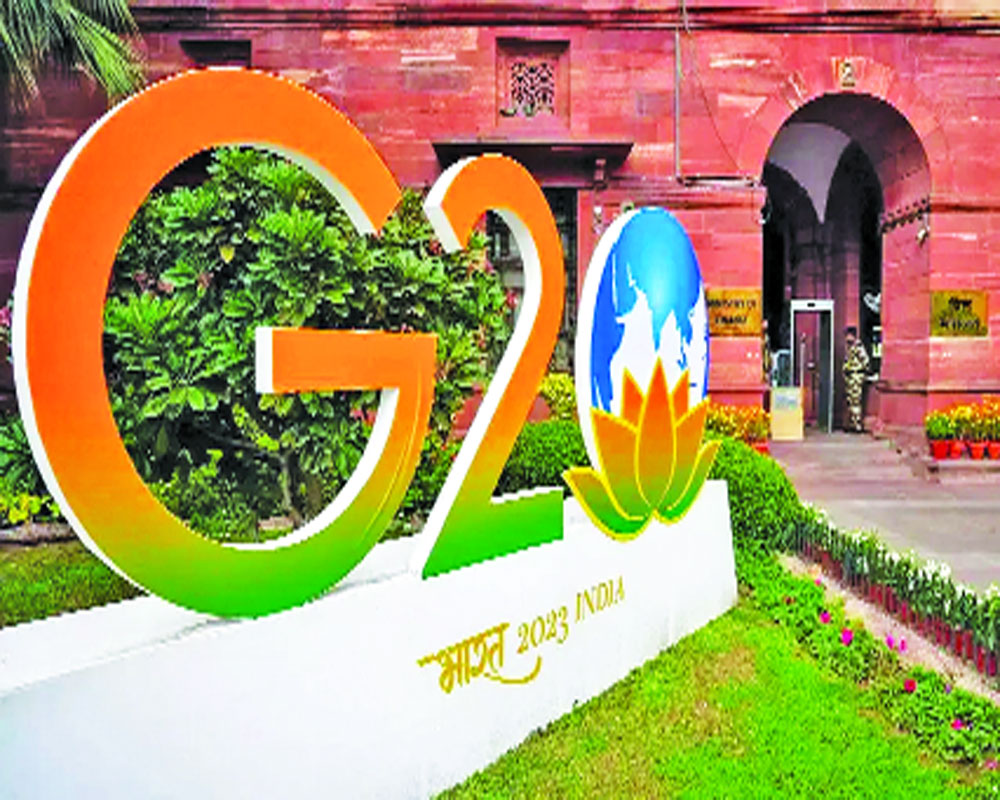The Summit's success showcased India's capability to unite the world and assume leadership roles in developmental and geopolitical matters
In a recent turn of events at the G20 summit, it was notably Xi Jinping's absence that caught the world's attention. Some speculate that his decision to skip the summit was a strategic move to keep India from stealing the limelight. However, the G20 Summit held in New Delhi showcased how India, alongside the United States and Europe, found effective ways to challenge China's global influence. India's accomplishment at the summit was hailed by other G20 nations. They managed to reach a consensus on a joint communique, a significant achievement given the uncertainty just days before this annual diplomatic gathering.
Beyond addressing the Russia-Ukraine conflict, the G20 also welcomed the African Union as a full member and tackled pressing issues like climate change and debt sustainability, particularly concerning emerging markets. While Ukraine expressed some dissatisfaction with the communique's language regarding the conflict, the United States and its allies considered it a worthwhile compromise. They saw it as a means to strengthen India's standing as a rising power capable of countering China's global influence.
President Joe Biden took the lead in this effort, recognizing India as a key partner in isolating China and Russia while reinforcing the U.S.-led world order. This outcome reflects Washington's increasing awareness of the concerns of the "Global South," with India playing a central role as its guide. Some analysts interpreted the softened stance on Russia-Ukraine as a Western concession, but it can also be seen as a concerted effort to ensure India's success.
Failing to reach an agreement would have been a significant setback for India, especially for Prime Minister Narendra Modi, who had staked much on this summit ahead of the 2024 Lok Sabha elections. One of the summit's defining moments was President Biden's meeting, where he discussed initiatives to provide additional funding to developing countries. In a notable photo op, Biden stood alongside World Bank President Ajay Banga (the first Indian American in this role), Prime Minister Modi, Brazil's Luiz Inacio Lula da Silva and South Africa's Cyril Ramaphosa—key members of the BRICS group, excluding China and Russia. This bloc's expansion poses a challenge to the advanced economies of the Group of Seven (G7).
The United States also announced a separate agreement with India, the European Union, Saudi Arabia, Israel and other Middle Eastern nations to establish an extensive rail and maritime network in the region. President Biden praised this as a "transformative regional investment." This move could potentially reshape the dynamics of the Middle East, emphasizing economic cooperation over human rights concerns. Xi Jinping's decision to skip the G20 summit, his first absence since taking office in 2013, marked a significant departure from his previous approach.
Last November, he portrayed himself as a statesman seeking positive international relations. China's negotiators, by contrast, risked appearing overly critical, even raising minor issues like Modi's use of a Sanskrit phrase and the U.S.'s bid to host the G20 in 2026. India, on the other hand, seized the opportunity to assert its global leadership position. Prime Minister Modi called it a historic moment, while his chief negotiator, Amitabh Kant, referred to India as the representative of the entire Global South. The summit's outcome showcased India's ability to unite the world and assume leadership roles in both developmental and geopolitical matters. the G20 Summit in New Delhi underscored India's growing influence on the global stage and its pivotal role in challenging China's dominance. It marked a significant shift in international dynamics, with India emerging as a key player in shaping the future of global diplomacy and development.
(The writer is a researcher. The views expressed are personal)


























